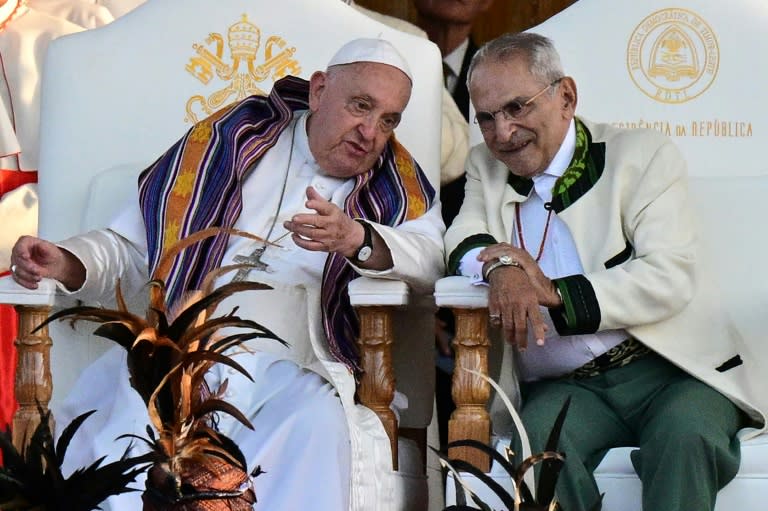East Timor says Australia pipeline deal to be struck by November

East Timor President Jose Ramos-Horta said on Wednesday a deal with Australia on a vast fossil fuel project seen as crucial to the tiny nation's economic future will be struck by November.
Speaking to AFP at his residence in the capital Dili, the Nobel-winning leader said an agreement on the Greater Sunrise project -- which aims to tap trillions of cubic feet of natural gas -- would be signed within weeks.
Exploration has been stalled for years at the project, located in waters between the neighbouring countries, due to disputes over maritime boundaries and whether the gas should be refined in Australia or East Timor.
"Soon we will sign an agreement with Australia on the development of Greater Sunrise. A decision will be made to develop the big gas field," he said.
"The agreement should be signed no later than November, probably. It will be signed this year."
Asia's youngest nation, which secured independence in 2002, is trying to shore up the future of its nascent economy, which is heavily reliant on oil and gas reserves.
"China needs it, Japan, South Korea, they need it," Ramos-Horta said of Greater Sunrise.
However, he said whether resources would be piped to East Timor or Australia was still to be decided by both governments after an independent study.
"Why should it go to Darwin?" he said.
Project operator Woodside Energy also appeared to manage expectations in an investor call last month, saying "Sunrise has a lot of complexity... we've got a bit of work to do".
Australian officials had been concerned that China could fund the project when there were already wider fears about Beijing's expanding regional influence.
That includes in East Timor, which sits a few hundred kilometres off Australia's northern coast.
Ramos-Horta said in a wide-ranging interview that relations with Canberra, tense for years over a spying scandal that became public in 2018, have been reset.
"The bugging was unkind. But... every country, they bug everybody else," he said.
"So now we have great relations with Australia. Australia is a true friend, a great friend."
- US-China rivalry -
The 74-year-old spoke of delicately balancing relations with the United States and China as competition ramps up in the Asia-Pacific region, condemning critics over East Timor's warming ties with Beijing.
Australia and New Zealand have historically been the region's go-to security partners but there are worries in Washington that China may one day parlay agreements with small nations into a permanent military foothold.
"We have Australian, Portuguese and American military personnel. We don't have any Chinese military personnel. So what are they talking about?" Ramos-Horta said.
He brushed aside a 2023 deal to upgrade ties with Beijing as "formalities".
"China has such comprehensive strategic framework agreements.. with many other countries," he said.
He then called on Beijing and Washington to tamp down rising regional competition.
"Superpowers, they have a responsibility to their own people, they have a responsibility to the region, to the rest of the world," he said.
"They should be... benevolent, wise," he added, saying Chinese President Xi Jinping and the next US president should meet to reset relations.
- Church abuse -
One of East Timor's central liberation figures, Ramos-Horta's struggle for independence from Indonesia through tireless diplomacy in a decades-long exile won him a Nobel Peace Prize and two terms, a decade apart, as leader.
He shared that Nobel prize with Bishop Carlos Ximenes Belo, who was accused of sexually assaulting young boys and was secretly sanctioned by the Vatican in 2020 and now lives in Portugal.
Ramos-Horta said he wants "no child abuse" in East Timor, responding to a call by Pope Francis during the pontiff's three-day visit this week for the country's leader to do more on all forms of abuse.
He repeated that he would follow the Vatican's laws to deal with clergy members and, if any cases fell under the purview of East Timor's legal system, they would be dealt with.
Ramos-Horta said of Belo that the Timorese still respected him for how he saved lives during the struggle for independence from Indonesia.
"Our people, in spite of the revelations that have come, they keep this respect for Bishop Belo," he said.
"I feel the same like the people."
jfx/pbt
